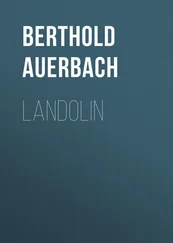Berthold Auerbach - On the Heights - A Novel
Здесь есть возможность читать онлайн «Berthold Auerbach - On the Heights - A Novel» — ознакомительный отрывок электронной книги совершенно бесплатно, а после прочтения отрывка купить полную версию. В некоторых случаях можно слушать аудио, скачать через торрент в формате fb2 и присутствует краткое содержание. ISBN: , Жанр: foreign_antique, foreign_prose, на английском языке. Описание произведения, (предисловие) а так же отзывы посетителей доступны на портале библиотеки ЛибКат.
- Название:On the Heights: A Novel
- Автор:
- Жанр:
- Год:неизвестен
- ISBN:http://www.gutenberg.org/ebooks/33294
- Рейтинг книги:4 / 5. Голосов: 1
-
Избранное:Добавить в избранное
- Отзывы:
-
Ваша оценка:
- 80
- 1
- 2
- 3
- 4
- 5
On the Heights: A Novel: краткое содержание, описание и аннотация
Предлагаем к чтению аннотацию, описание, краткое содержание или предисловие (зависит от того, что написал сам автор книги «On the Heights: A Novel»). Если вы не нашли необходимую информацию о книге — напишите в комментариях, мы постараемся отыскать её.
On the Heights: A Novel — читать онлайн ознакомительный отрывок
Ниже представлен текст книги, разбитый по страницам. Система сохранения места последней прочитанной страницы, позволяет с удобством читать онлайн бесплатно книгу «On the Heights: A Novel», без необходимости каждый раз заново искать на чём Вы остановились. Поставьте закладку, и сможете в любой момент перейти на страницу, на которой закончили чтение.
Интервал:
Закладка:
With constant regularity the prince was daily carried to the queen. That was the event of the day, after which life, in the crown prince's apartments, went on in its usual course.
Doctor Gunther now relaxed his orders; for one day, he said: "The weather is charming, and it will do the prince good to send him out of doors a little while. We will arrange it in this way: – At eleven o'clock, you can drive out with Walpurga and the prince, as far as the Nymph's Grove. Arrived there, you can walk about with the child under the pines, or can sit down, if you wish to do so. After remaining there about half an hour, you will return and at once remove to the new apartments. You have taken good care of yourself, Walpurga; continue to do so. Let nothing move you from your accustomed ways, and you will continue to afford pleasure to all of us, as well as to yourself."
Walpurga was quite beside herself with happiness. "We're going out riding," said she to the child, when the physician had left. "God sends you everything good while you are asleep. But you'll let me have some, too, won't you? for you've a good heart, and I've given you mine."
Walpurga would have continued in this vein for a long while, but Mademoiselle Kramer came up and, while gently patting her cheeks, said: "You'll have red cheeks again. Show your love for the prince, with calmness and moderation, and not with such extravagant expressions."
"You're right," said Walpurga. "It's true; I'm not always so. I was always cheerful, but prudent at the same time: not so giddy as I now am," said she, after she had walked up and down the room several times, and at last sat down by the window. "I'll tell you what ails me."
"Indeed, does anything ail you?"
"Yes, the worst of all ills. I've nothing to do. I don't know what to put my hands to. This constant talking, dressing and undressing, eating and drinking, with nothing else to do, makes me stupid. The next time the doctor comes, tell him to give me some work. I'll carry wood or do anything that is to be done. They're mowing the grass in the palace garden, and if I could only be down there with them, I'd feel the better of it. No man could beat me at mowing grass. Grubersepp often used to say that the women sharpened their scythes seven times as often as the men, but that never happened with me."
"Oh, that would never do. But I shall see that you get some exercise."
"Come, you're to go out of doors, into the fresh air," said Walpurga to the prince.
"Thy cage is open! Fly away,
Far o'er land and sea.
But tell me, birdie; tell me pray, -
Where can my darling be?"
"What a pity that the birds have stopped singing. Yes, dear child, they only sing so long as there are young ones in the nest; but I shall have you in my nest for a whole year, and I'll sing better than the birds could," – and she sang:
"Ah, blissful is the tender tie
That binds me, love, to thee,
And swiftly speed the hours by
When thou art near to me.
"My heart doth bear a burden, love,
And thou hast placed it there-
And I would wager e'en my life
That none doth heavier bear."
"Brava! charming!" said Countess Irma, entering the room. "I should like to learn that song. Sing it again."
Walpurga repeated it and, at the second verse, Irma joined in the song.
"It doesn't really suit a child," said Walpurga, "but what does such a youngster know about lowing cows or singing birds? It's all one to him. We're going out riding to-day. Do you go with us?"
"I would be glad to ride with you, but I may not," replied Countess Irma.
"Then you're not allowed to do whatever you please."
Her words surprised Irma: "What do you mean?" asked she, sharply.
"Forgive me, if I've said anything stupid. I only meant to say you're in service as well as the rest of us. You're a maid of honor, I believe."
"All must serve some one; the king and queen serve God."
"We must all do that."
"Yes, but princes have a much harder time of it than we, for theirs is a far greater responsibility. But what am I saying? You ought to feel happy that you needn't know everything. I've brought some writing copies for you. I owe you thanks for one thing, already. Ever since I've resolved to teach you, my own writing has become far plainer than before-"
Irma suddenly checked herself, for she realized the full force of what she had been saying, and continued: "for you are to learn it thoroughly."
Baum came to announce that the carriage was waiting. Irma left, saying that she would meet Walpurga in the park.
They now went out and Baum let down the carriage steps for them. Mademoiselle Kramer, who was the first to enter, held the child until Walpurga had seated herself. Baum jumped up behind and took his place beside the second lackey; the four horses stepped out and the carriage started.
"Are we driving?" asked Walpurga.
"Certainly."
"It seems like flying. I can't hear the least rumbling of the wheels."
"Of course you can't. The tires are covered with india-rubber."
"And so they wear cloth shoes just as we do when we walk on smooth floors. Oh, how clever they all are here. Out yonder, they don't know a thing. They live just like cattle; the only difference is they don't eat grass-but what's the matter?" said she, starting with fright. "They're beating the drums and the soldiers are rushing toward us. Is there a fire somewhere?"
"That's on our account. The guard always present arms when a member of the royal family passes by-watch them. They're presenting arms and after we've passed they'll lay their muskets aside and return to the guardroom. Their regiment is known as the crown prince's, for it belongs to him."
"And so he'll have live soldiers to play with when he grows up."
Mademoiselle Kramer showed all the self-command befitting one who could boast of a line of sixteen ancestors. A slight start and an odd, nervous twitching of the features, as if suppressing a yawn, were the only visible effects of Walpurga's words. But of laughter there was not a sign. An upper servant of the right sort must hear and see all that is going on, and yet stand by as if he were no more than the table or plate that can be moved about at will; and although Walpurga was not her superior, it would not do to laugh at her, for she was nurse to his royal highness the crown prince. Mademoiselle Kramer therefore refrained from laughing, and, as if to evade answering, merely said: "When we pass the guard on our way home, the same thing will happen again."
"And may I ask what's the good of it all?"
"Certainly; there is a good reason for everything, and this serves to accustom the people, and especially the soldiers, to show proper respect to their superiors."
"But our prince don't know anything of that."
"We must show our respect for him, even though he know nothing of it; and now let me tell you something which it would be well for you to know. Whenever you speak or think of their majesties, the king and queen, let it be as 'his majesty' or 'her majesty,' but never simply as king and queen, so that you may never so far forget yourself as to speak of them in a disrespectful manner. Bear this in mind."
Walpurga scarcely heard a word of what she said.
"Oh, Lord!" she exclaimed, "how wisely they've arranged everything. It must have taken many thousand years before they could get so far."
"It has, indeed. But you needn't nod to everyone you see bowing. It isn't meant for you."
"But I'd like to do it for my prince, until he can attend to it himself. They all show how glad they'll be to get a look at him. They all bow to you, my child-you're well off, indeed-oh, what a lovely carriage this is. It's as soft as a bed, and as comfortable as a room, and you can sit here and see all that's going on outside, and-dear me, how fast we're going."
Читать дальшеИнтервал:
Закладка:
Похожие книги на «On the Heights: A Novel»
Представляем Вашему вниманию похожие книги на «On the Heights: A Novel» списком для выбора. Мы отобрали схожую по названию и смыслу литературу в надежде предоставить читателям больше вариантов отыскать новые, интересные, ещё непрочитанные произведения.
Обсуждение, отзывы о книге «On the Heights: A Novel» и просто собственные мнения читателей. Оставьте ваши комментарии, напишите, что Вы думаете о произведении, его смысле или главных героях. Укажите что конкретно понравилось, а что нет, и почему Вы так считаете.












